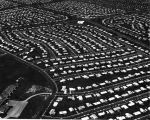It’s hard to imagine what set of circumstances would reverse recent trends and bring large numbers of jobs for unskilled laborers back to the U.S. Our efforts might be more fruitfully focused on getting Maddie the education she needs for a better shot at a decent living in the years to come. Subsidized job-training programs tend to be fairly popular among Democrats and Republicans, and certainly benefit some people. But these programs suffer from all the ills in our education system; opportunities go, disproportionately, to those who already have initiative, intelligence, and—not least—family support.
…This may be the worst impact of the disappearance of manufacturing work. In older factories and, before them, on the farm, there were opportunities for almost everybody: the bright and the slow, the sociable and the awkward, the people with children and those without. All came to work unskilled, at first, and then slowly learned things, on the job, that made them more valuable. Especially in the mid-20th century, as manufacturing employment was rocketing toward its zenith, mistakes and disadvantages in childhood and adolescence did not foreclose adult opportunity.
For most of U.S. history, most people had a slow and steady wind at their back, a combination of economic forces that didn’t make life easy but gave many of us little pushes forward that allowed us to earn a bit more every year. Over a lifetime, it all added up to a better sort of life than the one we were born into. That wind seems to be dying for a lot of Americans. What the country will be like without it is not quite clear.
Excerpts from Making It in America by Adam Davidson
——————–
It’s been a while since I reflected, in this blog, on this issue: “where will the jobs be?” There continue to be hints and signals and data that the job market has permanently changed — and not for the good — and that additional challenges are coming our way.
For example, far fewer Americans now have health care where they work. It is , increasingly, an “individual policy” health care market.
For example, when you read about the “employment and unemployment numbers,” you will occasionally hear the “underemployment” figures. These are very alarming – and not going down.
The excerpt from the excellent article above is one I have been “saving” to blog about. And one problem is that I’m not sure anyone has the solution. I don’t.

My wife and I talked about our grandparents – and their parents – recently. My grandfather was a carpenter. That’s how we described his job. He was a house builder. As I look back, I realize that he led a crew of workers, going from lot to lot, putting up frames of houses. I doubt that many of his workers had much of an education. He, and many more like him, built the houses that facilitated the early moves out to the suburbs. It was a gigantic building boom.
Today, fewer workers are needed to accomplish the same tasks. Far fewer. And that means, increasingly, whatever jobs there are go to the “bright.” From the excerpt above: “there were opportunities for almost everybody: the bright and the slow.”
We can better educate, we can motivate, we can train – but there will always be the “slow” among us. And if a society does not have enough jobs for those folks, the ripple effects can be devastating.
I’m simply not sure that we are thinking about this often enough, well enough, with enough focus and substance. We need not worry too much about the “best, the bright” among us. But the others?…
Go back up to the excerpt – read the last paragraph carefully – the one that begins with:
“For most of U.S. history, most people had a slow and steady wind at their back…”
The wind seems to be dying out. And, so, we ask, again – where will their jobs be?
